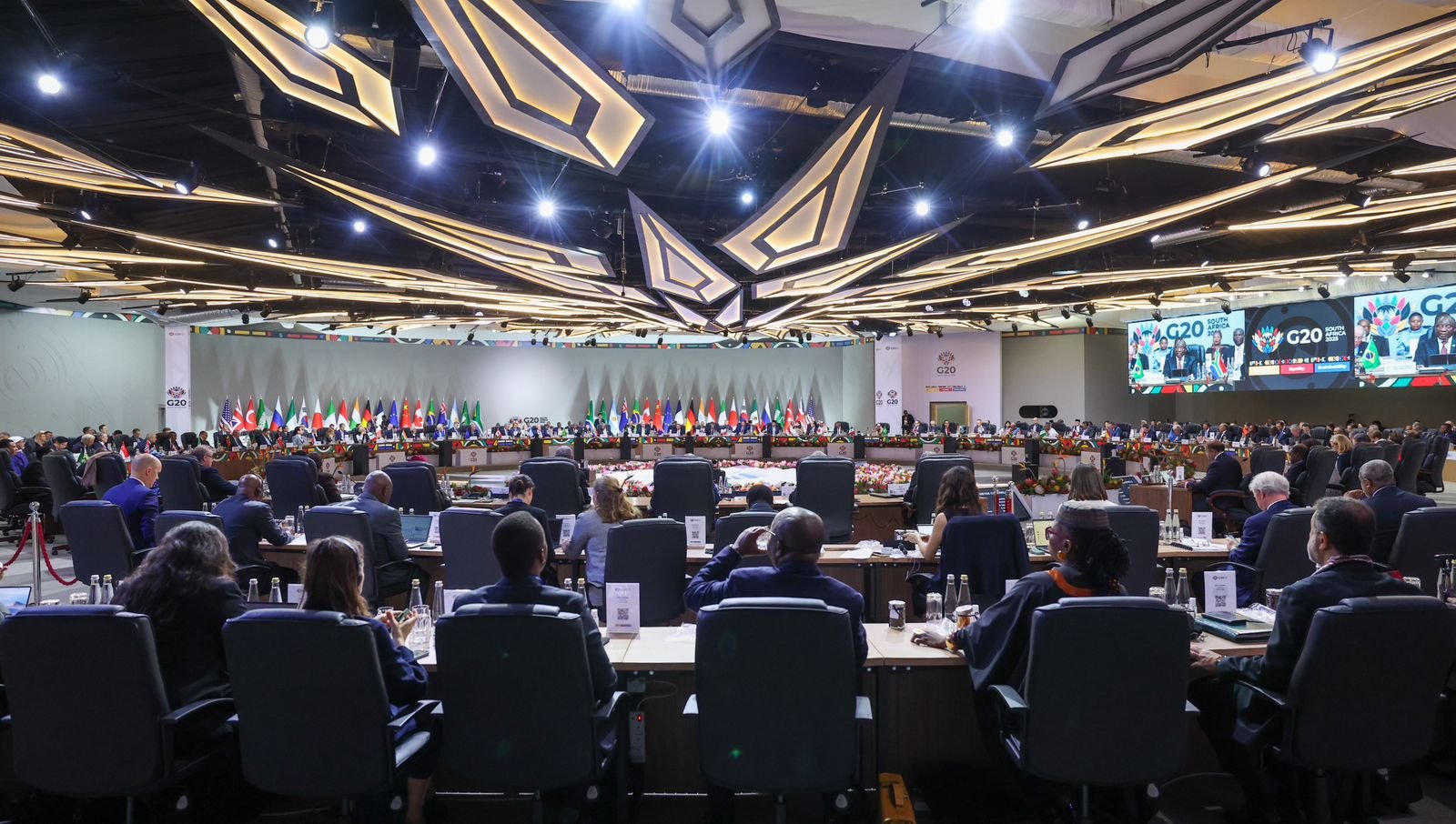Modi Charts Bold Vision for Inclusive Global Future at G20 Johannesburg, Launches Six Key Initiatives
Indian Prime Minister Narendra Modi delivered a sweeping call for a reimagined development agenda at the G20 Leaders’ Summit in Johannesburg, setting out six major global initiatives and pressing for a “civilisational” rethink of growth models that leave people and the planet behind.
 |
| Image Source: PM NaMo |
In his address, Modi pitched for rethinking global development parameters, arguing that the current frameworks have left large sections of the world deprived and have led to the overexploitation of nature.
Drawing from India's philosophical ethos of Integral Humanism, he said development must harmonise individuals, societies and ecosystems, and cannot be dictated solely by economic metrics.
Modi proposed six transformative initiatives. These include a Global Traditional Knowledge Repository, aimed at preserving the inherited wisdom of civilisations; a G20-Africa Skills Multiplier Initiative to train one million certified trainers over a decade; a Global Healthcare Response Team to rapidly respond to future health emergencies; an Open Satellite Data Partnership to democratise space-based data access for the Global South; a Critical Minerals Circularity Initiative to push urban mining and battery recycling for green growth; and a G20 Counter-Drug Terror Nexus Initiative, targeting the global threat of synthetic narcotics like fentanyl, which he called a menace to security and public health.
The G20 summit, the first ever hosted on the African continent, also saw Modi spotlighting Africa’s central role in global governance, building on India’s 2023 achievement of securing the African Union’s permanent membership in the G20.
He emphasised that Africa’s youth must be equipped with the skills to shape the 21st century, noting, “Africa’s development is global development.”
The G20 Leaders’ Declaration, unusually adopted at the summit’s outset rather than its conclusion, was a landmark moment.
It endorsed multilateralism, condemned terrorism unequivocally, and reaffirmed a rules-based international order, even as the United States boycotted the event, citing tensions with the host country.
Despite pressure from former US President Donald Trump not to adopt the declaration in his absence, South Africa pushed through, securing broad international support for the statement.
Modi's interventions reflected an assertive Indian foreign policy anchored in civilisational diplomacy and Global South solidarity.
He praised South Africa’s leadership for building on priorities advanced in New Delhi and Rio de Janeiro, including digital economy cooperation, food security, skilled migration, women’s empowerment, and AI governance.
Beyond the plenary sessions, Modi held a series of high-level bilateral and multilateral meetings. He met UK Prime Minister Keir Starmer, German Chancellor Friedrich Merz, French President Emmanuel Macron, Canadian PM Mark Carney, Australian PM Anthony Albanese, and Ethiopian PM Abiy Ahmed, among others.
In a key moment, he joined Albanese and Carney to launch the Australia-Canada-India Technology and Innovation (ACITI) Partnership, aimed at advancing collaboration on emerging tech, clean energy, and AI across three continents.
Modi also met UN Secretary-General António Guterres, WTO chief Ngozi Okonjo-Iweala, and African leaders including President João Lourenço of Angola, Sierra Leone's Julius Maada Bio, and Vietnam’s Pham Minh Chinh, reinforcing India's leadership role in South-South cooperation.
Back home and in the diaspora, Modi’s G20 agenda drew attention for its emphasis on India’s cultural and civilisational values as guiding tools for global reform.
He shared emotional moments with the Indian community in South Africa, attended a traditional folk performance, and received a symbolic Kalash from the Chinmaya Mission containing millets from India and South Africa, linking agricultural sustainability to spiritual tradition.
